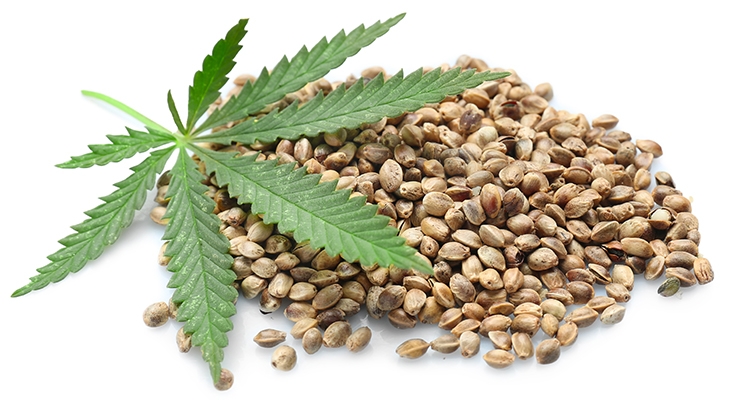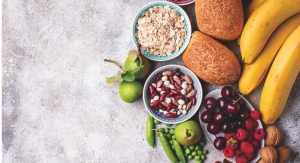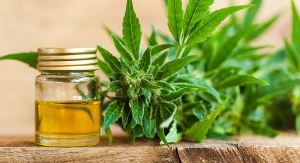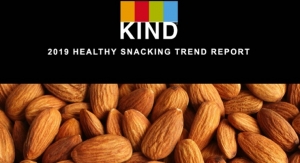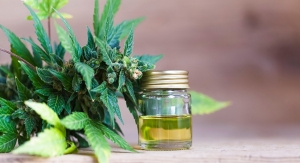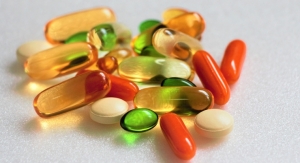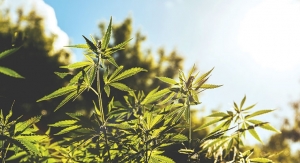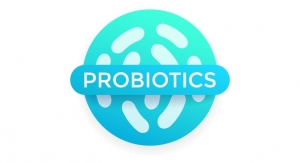By Todd Harrison & Meryl Nolan, Venable01.03.19
This column focuses on the evolution and acceptance of Cannabis sativa, from THC content of less than 0.3% to the heartier strains that are taking states by storm, and promising to cure whatever ails you.
I have long believed U.S. drug laws are outdated and that smoking weed/pot/grass should be legalized and regulated to avoid potential harm, but the explosion of state laws legalizing pot makes little sense from a public safety point of view. Moreover, we need to stop insisting that pot is not harmful to the body, that it is a non-addicting substance with a high safety profile. If we are being honest, pot is no more benign than alcohol.
Yet, states such as Colorado, California, and others have bought in, enacting laws that are downright dangerous and unsafe. Truly, in California’s case, legislators seem more worried about cannabidiol (CBD) than purified extracts of THC. Go figure. While I do not have an issue with the legalization of pot for smoking, let’s stop pretending that it’s a benign substance that cannot be abused, and understand that edibles are simply unsafe and should be prohibited from commercial distribution to the general public.
Call to Federal Action
It is simply time to enact, federally, a sane and rational marijuana law that permits the sale of pot instead of having a patchwork of questionable state laws that are either overly restrictive or entirely too lenient. Until we can enact sane legislation at the federal level, I agree that the Drug Enforcement Association (DEA) should use its enforcement discretion when it comes to the commercial sale of marijuana leaves, whether whole or simply ground.
However, I do not understand why the FDA and DEA continue to exercise restraint when marijuana is added to food and sold commercially. And, yes, the federal government does have the authority to step in because these products are making their way into interstate commerce. Indeed, establishing interstate commerce is not difficult for either agency. The height of idiocy on this issue should concern us all. It is time for the federal government to step in to act responsibly regarding edibles since it is clear that state legislatures simply do not have a clue regarding safety, which is no surprise.
On the other hand, Congress must lift the ban on marijuana and establish a regulatory scheme that actually makes sense. This system needs to preempt all state laws, require limits on THC content, and ban the addition of THC to food products unless it can be shown to be safe.
Moreover, such a regulatory framework cannot increase the cost of pot to the point where it is cheaper to get on the black market than to buy it legally. Only then will we have achieved the appropriate balance of permitting the sale of marijuana for recreational purposes while protecting the public from unsafe edible products. One last caveat: yes, I understand that people will still make homemade pot brownies, but you cannot regulate stupidity in the home.
At the same time, we’ve had idiotic laws that made it a felony to grow 0.3% hemp. From basic nutrition to clothing, hemp just makes sense to legalize, but for decades it has not been legal to sell. Fortunately, I am hoping that by the time this article is published the 2018 Farm Bill will have been passed and signed into law, descheduling hemp as a controlled substance. However, descheduling is not the same as legalization for all purposes, except from a controlled substance point of view. Indeed, there are significant changes from the 2014 Farm Bill and companies involved in the hemp and CBD industries should take note of the proposed changes analyzed here.
Farm Bill Update
The 2018 Farm Bill will amend the Agricultural Marketing Act of 1946 to define hemp as “the plant Cannabis sativa L. and any part of that plant, including the seeds thereof and all derivatives, extracts, cannabinoids, isomers, acids, salts, and salts of isomers, whether growing or not, with a delta-9 tetrahydrocannabinol [THC] concentration of not more than 0.3 percent on a dry weight basis.”
The draft bill also revises the definition of “marihuana” in the Controlled Substances Act to remove hemp, including cannabinoids, extracts, and derivatives. In short, all parts of the hemp plant, including the aerial parts, are now fair game for production. The revised definitions effectively transfer authority over the cultivation, production, and sale of products that contain hemp or constituents of hemp from the U.S. DEA to the U.S. Department of Agriculture (USDA) and to FDA.
The plain language of the proposed 2018 Farm Bill would permit the cultivation and production of hemp and extracts thereof with a THC content of no more than 0.3 percent. Importantly, the use of “hemp producer” in the proposed bill rather than “hemp grower” indicates that the THC cap in the definition of hemp extends beyond cultivation to manufacturers of hemp extracts and derivatives. Further, the inclusion of “growing or not” is a clear indication that an ingredient manufacturer cannot ship a hemp extract with a THC level above 0.3 percent.
Moreover, products with a THC content greater than 0.3 percent would be subject to both penalties as non-conforming goods under the amended Agricultural Marketing Act and regulation as a controlled substance under the definition of “marihuana.”
Manufacturers of hemp products should take note of how the new definition of hemp will affect their business models. Extraction processes must limit the THC content in the finished extract before shipping to the finished product manufacturer for further processing. Additionally, processes will need to be in place to ensure the proper disposal of THC in the extract if the THC itself cannot be destroyed in the extraction process.
The proposed 2018 Farm Bill also creates requirements for states and Indian tribes to create programs to regulate hemp production within their jurisdictions. Hemp producers operating in states that choose not to submit a plan for review will be subject to the federal program. Manufacturers of hemp and CBD products should take note that both the state and federal programs will require licensing, and some state-specific programs may have more stringent requirements beyond those in the proposed bill, including an outright ban on the production of hemp within the state.
The state and tribal plan approval process and the licensing requirements will increase the length of time until the new hemp regulatory framework takes effect on manufacturers. USDA and state regulators may exercise enforcement discretion while the regulations and licensing framework is put in place.
During the interim period, manufacturers should ensure that all extracts and hemp-related products conform to the existing exemption under the 2014 Farm Bill, as it will take time to put in the appropriate programs and regulations at the state and federal level. The 2018 Farm Bill contemplates that this will all be done within a year’s time, but I would be surprised that everything can be in place that quickly at the federal level and in those states without anything in place under the 2014 Farm Bill.
The proposed 2018 Farm Bill also explicitly recognizes that nothing in the act is intended to affect or modify FDA’s authority under the Federal Food, Drug, and Cosmetic Act. Thus, manufacturers should keep in mind that any food, dietary supplement, or cosmetic containing hemp extracts or derivatives must comply with FDA’s current position on CBD’s use in food or dietary supplements or be prepared to challenge FDA’s position.
Indeed, there are still significant issues to be dealt with when it comes to marketing CBD and hemp including the Investigational New Drug (IND) application, clinical investigations, and the ultimate approval of Epidiolex by FDA. I have written often about this issue previously. However, it is time for the food and supplement industry to file a petition setting out the rationale for regulation of hemp extracts that contain CBD. This path makes far better sense than FDA initiating legal action against the marketers of CBD products and would save a significant amount of money while clearly defining what is permissible and what is not.
This regulatory framework should be done through proposed regulations rather than through guidance. This approach would allow FDA and industry to define what is meant by “substantial clinical trials,” “article used as a drug,” or what constitutes adding a “drug” to food. It would set limits on the level of CBD in food and dietary supplements that would be considered safe.
I strongly believe if we work with FDA, an appropriate resolution that will satisfy industry and FDA can be reached in a timely manner rather than through expensive litigation that will only target one or two companies while the rest of the industry continues down the same path. Rational regulation makes more sense than the status quo that we have now in which the industry simply does not have appropriate guideposts to follow.
Todd Harrison
Venable
Todd Harrison is partner with Venable, which is located in Washington, D.C. He advises food and drug companies on a variety of FDA and FTC matters, with an emphasis on dietary supplement, functional food, biotech, legislative, adulteration, labeling, and advertising issues. He can be reached at 575 7th St. NW, Washington, D.C. 20004, Tel: 202-344-4724; E-mail: taharrison@venable.com.
Meryl Nolan
Venable
Meryl Nolan is an associate with Venable LLP who focuses on food and drug law, advertising law, and general regulatory matters. She is a 2017 graduate of the Georgetown University Law Center. She was previously an intern at the Department of Justice and worked in the Civil Division’s Consumer Protection Branch, where she focused on online payment processor crimes.
I have long believed U.S. drug laws are outdated and that smoking weed/pot/grass should be legalized and regulated to avoid potential harm, but the explosion of state laws legalizing pot makes little sense from a public safety point of view. Moreover, we need to stop insisting that pot is not harmful to the body, that it is a non-addicting substance with a high safety profile. If we are being honest, pot is no more benign than alcohol.
Yet, states such as Colorado, California, and others have bought in, enacting laws that are downright dangerous and unsafe. Truly, in California’s case, legislators seem more worried about cannabidiol (CBD) than purified extracts of THC. Go figure. While I do not have an issue with the legalization of pot for smoking, let’s stop pretending that it’s a benign substance that cannot be abused, and understand that edibles are simply unsafe and should be prohibited from commercial distribution to the general public.
Call to Federal Action
It is simply time to enact, federally, a sane and rational marijuana law that permits the sale of pot instead of having a patchwork of questionable state laws that are either overly restrictive or entirely too lenient. Until we can enact sane legislation at the federal level, I agree that the Drug Enforcement Association (DEA) should use its enforcement discretion when it comes to the commercial sale of marijuana leaves, whether whole or simply ground.
However, I do not understand why the FDA and DEA continue to exercise restraint when marijuana is added to food and sold commercially. And, yes, the federal government does have the authority to step in because these products are making their way into interstate commerce. Indeed, establishing interstate commerce is not difficult for either agency. The height of idiocy on this issue should concern us all. It is time for the federal government to step in to act responsibly regarding edibles since it is clear that state legislatures simply do not have a clue regarding safety, which is no surprise.
On the other hand, Congress must lift the ban on marijuana and establish a regulatory scheme that actually makes sense. This system needs to preempt all state laws, require limits on THC content, and ban the addition of THC to food products unless it can be shown to be safe.
Moreover, such a regulatory framework cannot increase the cost of pot to the point where it is cheaper to get on the black market than to buy it legally. Only then will we have achieved the appropriate balance of permitting the sale of marijuana for recreational purposes while protecting the public from unsafe edible products. One last caveat: yes, I understand that people will still make homemade pot brownies, but you cannot regulate stupidity in the home.
At the same time, we’ve had idiotic laws that made it a felony to grow 0.3% hemp. From basic nutrition to clothing, hemp just makes sense to legalize, but for decades it has not been legal to sell. Fortunately, I am hoping that by the time this article is published the 2018 Farm Bill will have been passed and signed into law, descheduling hemp as a controlled substance. However, descheduling is not the same as legalization for all purposes, except from a controlled substance point of view. Indeed, there are significant changes from the 2014 Farm Bill and companies involved in the hemp and CBD industries should take note of the proposed changes analyzed here.
Farm Bill Update
The 2018 Farm Bill will amend the Agricultural Marketing Act of 1946 to define hemp as “the plant Cannabis sativa L. and any part of that plant, including the seeds thereof and all derivatives, extracts, cannabinoids, isomers, acids, salts, and salts of isomers, whether growing or not, with a delta-9 tetrahydrocannabinol [THC] concentration of not more than 0.3 percent on a dry weight basis.”
The draft bill also revises the definition of “marihuana” in the Controlled Substances Act to remove hemp, including cannabinoids, extracts, and derivatives. In short, all parts of the hemp plant, including the aerial parts, are now fair game for production. The revised definitions effectively transfer authority over the cultivation, production, and sale of products that contain hemp or constituents of hemp from the U.S. DEA to the U.S. Department of Agriculture (USDA) and to FDA.
The plain language of the proposed 2018 Farm Bill would permit the cultivation and production of hemp and extracts thereof with a THC content of no more than 0.3 percent. Importantly, the use of “hemp producer” in the proposed bill rather than “hemp grower” indicates that the THC cap in the definition of hemp extends beyond cultivation to manufacturers of hemp extracts and derivatives. Further, the inclusion of “growing or not” is a clear indication that an ingredient manufacturer cannot ship a hemp extract with a THC level above 0.3 percent.
Moreover, products with a THC content greater than 0.3 percent would be subject to both penalties as non-conforming goods under the amended Agricultural Marketing Act and regulation as a controlled substance under the definition of “marihuana.”
Manufacturers of hemp products should take note of how the new definition of hemp will affect their business models. Extraction processes must limit the THC content in the finished extract before shipping to the finished product manufacturer for further processing. Additionally, processes will need to be in place to ensure the proper disposal of THC in the extract if the THC itself cannot be destroyed in the extraction process.
The proposed 2018 Farm Bill also creates requirements for states and Indian tribes to create programs to regulate hemp production within their jurisdictions. Hemp producers operating in states that choose not to submit a plan for review will be subject to the federal program. Manufacturers of hemp and CBD products should take note that both the state and federal programs will require licensing, and some state-specific programs may have more stringent requirements beyond those in the proposed bill, including an outright ban on the production of hemp within the state.
The state and tribal plan approval process and the licensing requirements will increase the length of time until the new hemp regulatory framework takes effect on manufacturers. USDA and state regulators may exercise enforcement discretion while the regulations and licensing framework is put in place.
During the interim period, manufacturers should ensure that all extracts and hemp-related products conform to the existing exemption under the 2014 Farm Bill, as it will take time to put in the appropriate programs and regulations at the state and federal level. The 2018 Farm Bill contemplates that this will all be done within a year’s time, but I would be surprised that everything can be in place that quickly at the federal level and in those states without anything in place under the 2014 Farm Bill.
The proposed 2018 Farm Bill also explicitly recognizes that nothing in the act is intended to affect or modify FDA’s authority under the Federal Food, Drug, and Cosmetic Act. Thus, manufacturers should keep in mind that any food, dietary supplement, or cosmetic containing hemp extracts or derivatives must comply with FDA’s current position on CBD’s use in food or dietary supplements or be prepared to challenge FDA’s position.
Indeed, there are still significant issues to be dealt with when it comes to marketing CBD and hemp including the Investigational New Drug (IND) application, clinical investigations, and the ultimate approval of Epidiolex by FDA. I have written often about this issue previously. However, it is time for the food and supplement industry to file a petition setting out the rationale for regulation of hemp extracts that contain CBD. This path makes far better sense than FDA initiating legal action against the marketers of CBD products and would save a significant amount of money while clearly defining what is permissible and what is not.
This regulatory framework should be done through proposed regulations rather than through guidance. This approach would allow FDA and industry to define what is meant by “substantial clinical trials,” “article used as a drug,” or what constitutes adding a “drug” to food. It would set limits on the level of CBD in food and dietary supplements that would be considered safe.
I strongly believe if we work with FDA, an appropriate resolution that will satisfy industry and FDA can be reached in a timely manner rather than through expensive litigation that will only target one or two companies while the rest of the industry continues down the same path. Rational regulation makes more sense than the status quo that we have now in which the industry simply does not have appropriate guideposts to follow.
Todd Harrison
Venable
Todd Harrison is partner with Venable, which is located in Washington, D.C. He advises food and drug companies on a variety of FDA and FTC matters, with an emphasis on dietary supplement, functional food, biotech, legislative, adulteration, labeling, and advertising issues. He can be reached at 575 7th St. NW, Washington, D.C. 20004, Tel: 202-344-4724; E-mail: taharrison@venable.com.
Meryl Nolan
Venable
Meryl Nolan is an associate with Venable LLP who focuses on food and drug law, advertising law, and general regulatory matters. She is a 2017 graduate of the Georgetown University Law Center. She was previously an intern at the Department of Justice and worked in the Civil Division’s Consumer Protection Branch, where she focused on online payment processor crimes.

